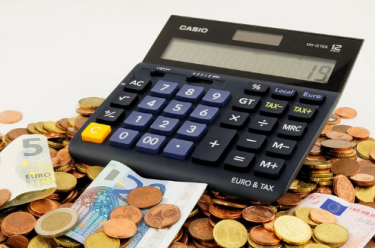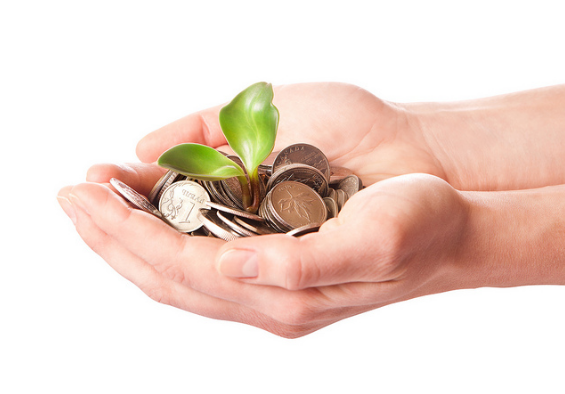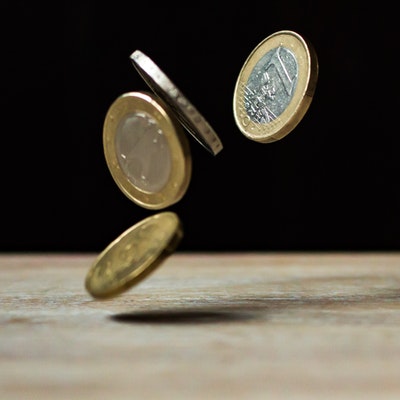Tracking Your Expenses: 6 Strategies for Plugging a Leak in Your Spending Habits

While the current statistics suggest U.S. residents have cut their spending, to some degree, during the past year, the fact is that far too many people still spend far more than they should.
If your spending is out of control, now is the time to look at your habits and find ways to cut spending.
Here are six strategies for plugging that leak in your spending habits.
Develop a Budget and Stick to It
Money management experts have been saying it for years, and it’s still true today. The first step in controlling spending is to develop a spending plan. For more information, go look at LifeManaged.
Setting up a budget is not easy for a lot of people since, in the past, they’ve never really looked at how and where they spent money. However, to control your finances, a budget is an absolute necessity.
That doesn’t mean you need to account for every last dollar, but it does mean tracking where your money goes is important.
A budget can have broad categories, like housing, utilities, credit card payments, and car payments. Of course, you’ll also need to budget money for food, clothing, and recreation.
Allocate a specific percentage of your income to each category to start with and modify the amounts, if necessary, over time. Most people have no idea how much they are spending on items like that morning latte.
If your favorite coffee shop charges $5.00 for a latte, and you stop their five days a week, you’re spending over $100.00 per month on morning coffee!
Once you’ve developed a budget that works for your needs, sticking to it isn’t always easy. There are always temptations that can destroy a budget quickly.
For example, if your friends decide a weekend ski trip to Vermont is a necessity, it’s easy to go along and spend money you’ve already allocated for another use. Breaking a budget once may not be catastrophic, but doing so frequently will mean the budget isn’t working.
Remember that unexpected expenses will occur. If your car’s transmission goes out, for example, the repair costs can easily exceed $1,500. That’s not something most people can deal with easily.
If the repair is put on a credit card, the higher payments in the coming months will impact the budget. Even a major appliance failing will be costly. A mid-range washing machine will cost $800 to $1,000. Again, not everyone has sufficient cash lying around to handle that type of expense.
Those unexpected expenses are why financial experts recommend having a contingency fund to handle unexpected emergencies built into your budget.
That will generally mean putting a pre-determined percentage of your income in a savings account earmarked for unexpected expenses.
Set Short- and Long-Term Financial Goals
Most people understand the importance of setting goals. Goal-setting is another one of those things everyone has been told about for years, but most people don’t consider very often.
However, it’s always a good idea to consider your short- and long-term financial needs and plan for the future. If you’re planning to buy a home in the future, saving for that purchase now is always important.
Cars need to be replaced, and not having savings dedicated to that next car purchase leads to an endless cycle of vehicle payments. With the costs of vehicles skyrocketing in recent years, those payments eat up a large share of the average person’s income.
Saving now means not having to pay as much interest in the future, which significantly reduces the real cost of purchasing a new vehicle.
Most people also plan to retire at some point. Without a retirement plan in place, your retirement is unlikely to be as pleasant as it could be.
Putting aside money now in a retirement plan will make life much easier after leaving the ranks of working people. The interest on those savings compounds, meaning you’re making even more money on the interest you’ve earned.
Even planning a once-in-a-lifetime vacation requires planning to avoid taking on credit card debt. If your goal is spending a month in Europe or exploring ruins in South America, now is the time to start saving for that trip.
Even saving a few dollars a month goes a long way toward achieving a vacation goal. It may take a couple of years to save the money, but doing so will be worth it when you know there won’t be mountains of bills coming in when you get home from that trip.
Avoid Borrowing Money
This step has already been alluded to, but it must be faced head-on. Plugging that spending hole requires avoiding borrowing money whenever possible.
According to the Federal Reserve, the mean credit card debt in the U.S. is roughly $5,700. That’s a lot, especially if the balances are never paid down. When a credit card account has a constant balance, you’re paying too much interest.
Every financial expert recommends keeping zero balances on credit cards unless it’s absolutely necessary to make a purchase. Even then, it’s important to cut other expenses so the credit card balance can be brought back down to zero.
For some people, paying cash is strongly recommended rather than using credit cards. It’s easy to pull out a credit card toward the end of the month when your cash is gone, but it’s not a good idea to do so.
If you don’t have the cash on hand to make a non-essential purchase, wait until there is extra money available to make the purchase.
If you know you’ll need a new vehicle in a couple of years, start saving now rather than borrowing the money at the last minute. The less you borrow, the less interest you’ll have to pay.
Don’t Shop Without a List
Impulse buying is a major problem for many people. If you’re having trouble controlling your spending, never shop without a list, and don’t buy anything that’s not on that list.
While you may think this only applies to grocery shopping, it doesn’t. When you’re shopping for clothes, evaluate your needs before leaving home and make a list of what you really need to buy. If you need two pairs of jeans, make sure you purchase two pairs, not three or four.
Even when you’re making a major purchase, write down what you need before shopping to avoid being tempted to spend more than is necessary.
When people buy vehicles, they’re often lured into a dealership by an ad that presents a specific model for a specific price. However, when arriving at the dealership, car shoppers find that price is for a bare-bones model that won’t meet their needs.
The shoppers are then shown far more-expensive versions of the vehicle that include packages and options they don’t need.
Stick to your list and purchase the vehicle you need rather than the one a dealership wants to sell you. If doing so means having to shop at another dealership to get what you really need, do it.
Always Evaluate Your Needs Vs. Wants
We live in a society that ranks people based on their possessions. People envy those who have nicer homes, cars, and clothes. It’s the norm, and just about everyone does it even if they don’t believe they are.
How important is it to appear wealthier than you are?
Does it really make any difference in the long run?
If you can’t afford that nice vehicle or home, stepping back and really evaluating your wants and needs is important. While it’s important to have what we need, it’s not nearly as important to have some of the things we want.
Financial experts routinely agree that people get into financial trouble when they are unwilling to alter their lifestyles. Even altering the number of times they eat out every month is virtually impossible for some people to do.
They’ve developed a habit of going out on certain nights and want to stick to that habit even if they can’t’ really afford to do so. To get your financial life under control now is the time to sit down and explore different options.
If you’re addicted to good food, take steps to make it at home rather than going out. Yes, finding some ingredients may be difficult, and many people need to learn advanced cooking skills to duplicate restaurant-quality meals, but it’s worth making the effort.
In fact, many people find they actually enjoy preparing a great meal at home once they get used to doing so, and the money saved can be put to better use elsewhere. In all cases, it’s important to revisit your budget often to stay abreast of changes in your life.
Enjoy Your New Financial Security
If you take the steps mentioned here, you’re on your way to a better financial future. It takes time to get beyond those bad spending habits, but it can be done. And, the financial security you’ll enjoy is worth the effort.
However, if you’re looking for other strategies or need help to implement the ones mentioned here, consider asking for help. Financial experts are always willing to share their expertise and help clients succeed in reaching their short- and long=term financial objectives.
If you need additional advice to establish goals, don’t be afraid to ask for help. You’ll be glad you took the time to change your financial future for the better.





